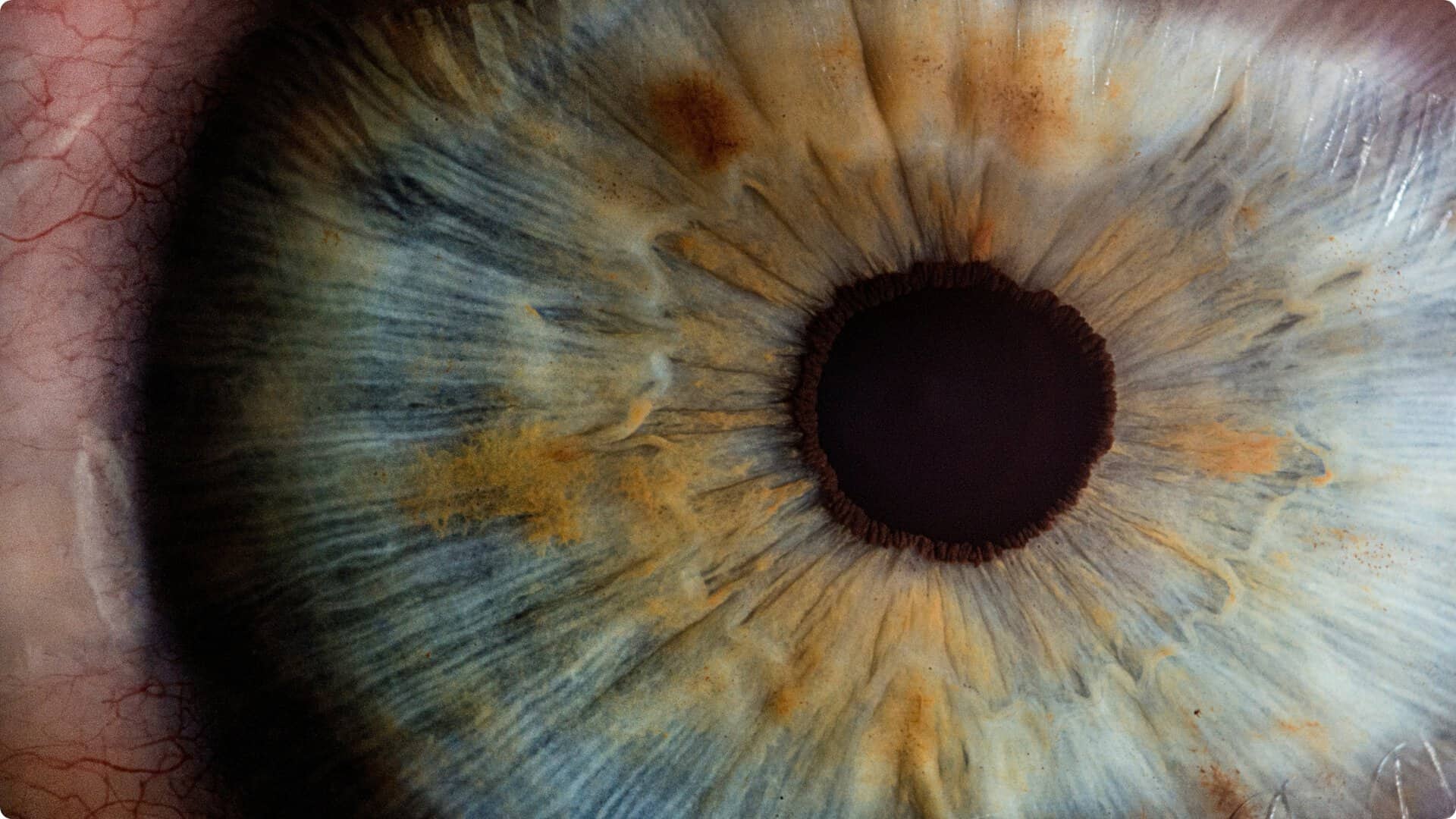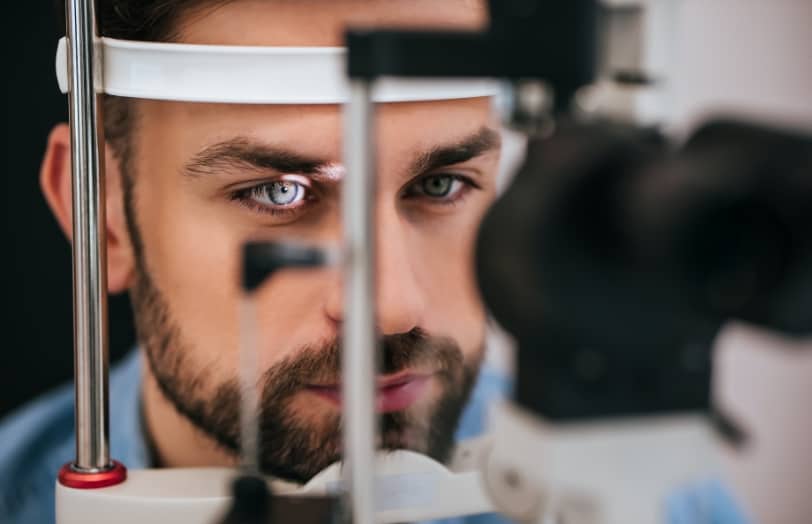Cataracts
It’s completely natural for changes in vision to become more noticeable as we get older. Cataract is a common condition in which the lens inside the eye becomes thicker and loses its transparency, causing clouding of the vision.
Cataract can affect your vision at all distances, making you feel as though you’re seeing the world through a frosted window. It mainly affects distance vision tasks, with many patients having no difficulty reading. As this condition develops very gradually over time, it will slowly begin to affect your day-to-day activities, including driving, watching TV or using a laptop or computer. It may even start to impact your daily independence.
If cataract surgery has been recommended to you by an eye specialist, it’s natural to feel mixed emotions, including relief and maybe some anxiety.
At Sapphire Eye Care, we understand that preparing for eye surgery can feel daunting, especially if it’s your first experience of a surgical procedure. It is natural to have anxieties about an eye operation, and that is why our team is here to guide you every step of the way, so you can feel informed, confident and comfortable.
In this article, we’ll take you through exactly what you can expect from the surgery, including how long it takes and how sedation for cataract surgery works, as well as how you can prepare for the procedure itself.
Before Your Cataract Surgery: What to Expect
Once you’ve had your initial consultation with one of our specialists, our dedicated secretarial team will get in touch so that we can schedule a date for your surgery. With Sapphire Eye Care, you’ll have the flexibility to choose a treatment timeframe that suits your personal needs. You can even select the private hospital, although this may be limited by your medical insurer if you are using private cover.
Once your cataract surgery is scheduled, you’ll receive detailed instructions from our team. Below, we’ve detailed some things that you can expect:
Pre-operative assessment
As the date of your treatment approaches, we’ll be in touch to ensure you’re equipped with all of the necessary details you’ll need before your surgery. We’ll also make sure all of your specific requirements are addressed, including any adjustments to your medication, although the vast majority of medications should be continued unchanged.
Although most of our patients can be medically assessed on the day of their surgery, some will need a pre-assessment. If this is necessary, we will let you know during your initial consultation.
Plan your transport
Due to the nature of the surgical procedure, you won’t be able to drive yourself to and from the hospital. Consider asking a friend or a family member to come with you, or to drop you off and pick you up after the surgery.
If you’re struggling to find someone who can do this for you, we may be able to help. Please let a member of our team know, and we will try our best to make other arrangements for you.
Preparing for Cataract Surgery
To help ease some of the nervousness before your cataract surgery, it’s a good idea to be prepared. We’ve compiled a few tips to help you feel calmer and ensure you’re fully prepared for your procedure:
- Bring entertainment: There may be some waiting time before your surgery, so make sure you bring something to keep you entertained. Keep your valuables at home, but take some reading material with you.
- Take a friend: As we’ve mentioned, make sure you have a trusted relative or friend to escort you to and from the hospital.
- Wear comfortable clothes: Since you’ll remain in your own clothing during surgery, opt for something loose-fitting and easy to relax in.

What to Bring with You
On the day of your surgery, we recommend bringing:
- Your appointment letter
- A list of any current medications
- Someone you trust to accompany you home
Some patients ask about bringing along sunglasses but, other than the oversized models designed to be worn on top of standard glasses, most will not fit over the plastic shield which covers the eye after the operation.
Sedation for Cataract Surgery: What You Should Know
Today, most cataract surgeries are carried out using drops that numb the eye area, which is called topical anaesthesia. This means that you will be awake during the operation, but you will not feel any pain at all.
We understand that it can feel a little intimidating, especially if you’re unsure what it will feel like. At Sapphire Eye Care, we prioritise your comfort throughout the procedure. Rest assured that cataract surgery is one of the safest procedures in the world. If you’re still nervous, we will offer you some sedation to help you relax; this should be discussed with your consultant in clinic. We will even hold your hand, if you’d like us to.
During the Procedure
On the big day, you will be asked to sign a consent form to affirm that you’ve been provided with all of the information relevant to the operation, including risks and benefits, and that you have understood and agreed to the proposed treatment.
The clouded lens will be carefully removed and replaced with a clear artificial lens. The entire process is delicate and efficient, and most people are surprised by how quick and painless it feels.
How Long Does Cataract Surgery Take?
One of the most common questions we hear is: How long does cataract surgery take?
During the procedure, you will see very little of what is happening. To help ease any anxieties, we will explain what we’re doing as the surgery progresses.
The actual procedure is usually very quick, taking around 10-15 minutes. Although in some cases, it can take longer. You’ll be at the clinic for around 3 to 4 hours in total, which includes time for pre-operative preparation, anaesthesia, and a short recovery period afterwards. It’s a day case surgery, meaning you won’t need to stay overnight.
After the Surgery
Following the procedure, you’ll rest briefly in a recovery area until you feel ready to go home. We’ll provide you with the following:
- Clear plastic shield: The operated eye, or eyes, will be covered with a clear plastic shield. This should stay in place overnight.
- Eye drops: The eye drops you will be given are both anti-inflammatory and antibiotic to assist with the healing process.
- Aftercare instructions: With the eye drops, you will be provided with written instructions for how to use them and how regularly they should be used. We will also make sure you know how to care for your eyes when you get home.
For the first day post-surgery, your vision may still be blurry. However, once your operated eye has settled, you will start to notice an improvement. Our patients are pleasantly surprised by how straightforward the process is and how much clearer their vision feels in the days and weeks that follow.
As soon as you feel ready, you will be able to return to your daily routine and normal activities, like reading, driving or gardening. However, for the first couple of weeks, we recommend that you avoid high-impact sports, swimming, heavy lifting and wearing eye makeup.
Everyone heals differently, so if you’re unsure, please check with your surgeon. We’ll guide you through everything you need to do for a smooth recovery.
You’re in Safe Hands with Sapphire Eye Care
Cataract surgery can truly bring meaningful improvement to your daily life. At Sapphire Eye Care, we’re here to make the journey smooth and as comfortable as possible, reassuring you every step of the way.
Whether you’ve just been referred to have cataract surgery, or you’re preparing for an upcoming operation, our dedicated team is by your side to support you with personalised care, compassionate attention and expert treatment.
Get in touch with us today or explore our patient guides, written by our expert surgeons, to learn more about what to expect.

More blog articles from this category
Glaucoma
Can I Still Drive with Glaucoma? What You Need to Know
Published 21.01.2026
Concerned about driving with glaucoma? Find out DVLA requirements, visual

Refractive Lens Exchange
Refractive Lens Exchange For Laser Eye Surgery Patients
Published 16.01.2026
Over 50 and previously had LASIK? Learn which lens implants

Oculoplastics
Upper vs. Lower Blepharoplasty: Which is Right For You?
Published 23.12.2025
Considering blepharoplasty? Discover the benefits of upper and lower eyelid









